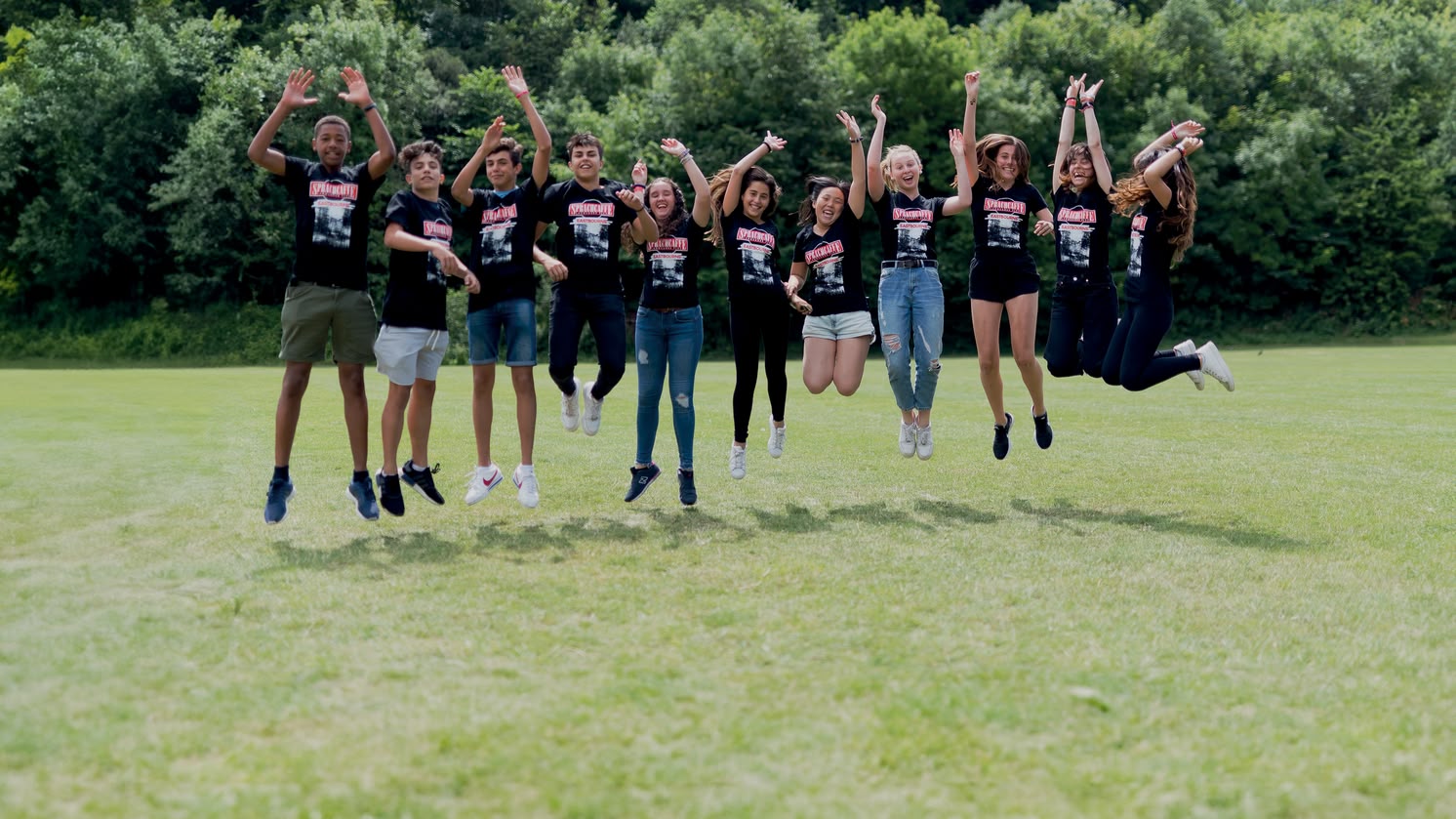30 Example Sentences Using “Be Going To”
“Be Going To” Sentences: Understanding the Grammar Rule



But first, let's do a quick review: what exactly is to be going to, and how does the grammatical rule related to it work?
The construction be going to is used in English to talk about the future , and is used in two main situations:
- To talk about already-decided future intentions or plans : We use it to talk about something we've already decided or planned to do.
Example :
I am going to learn French next year. → I intend to learn French next year.
(In this case, I've already planned it in some way, perhaps I've signed up for a course or I've marked it down in my New Year's resolutions.) - To make predictions based on evidence, proof, or obvious signs: We construct sentences with be going to when we make predictions based on current situations or obvious signs.
Example:
Look at those clouds! It is going to rain soon.
(I think it will rain because there is something that makes me believe it, namely the clouds in the sky, so it is likely that it will actually happen.)
At this point you may ask yourself: what is the difference with the future with will ?
Simply, let's compare them:
- Be going to is used for plans decided in advance, or predictions based on real, concrete evidence.
- Will is used for spontaneous decisions, made in the moment, or to make predictions that do not depend on concrete evidence.
Example:
I am going to visit my grandmother next week. → I'll go visit my grandmother next week. (I've already decided to do it; perhaps I've even already notified her or bought the ticket to go.)
I will call you later. → I'll call you later. (I just decided, on the fly)
30 Example Sentences Using “Be Going To”
Now that we've had a brief- but well-concentrated! -review of "to be going to" and its uses, all that's left to do is look at some examples of its structure. To do this, we'll analyze a total of 30 sentences with "to be going to": ten affirmative, ten negative, and ten interrogative.
This will give you a full and comprehensive understanding of this topic, which will undoubtedly become a part of your mind.
And don't worry, if that's not the case, you can always rely on our native-speaking teachers with online English courses !
Phrases with be going to affirmative
Here are 10 affirmative sentences with "be going to," with translations and explanations of why "be going to" was used in each case:
- I am going to start
a new job next week.
In this case, "be going to" is used because the person has already decided to start the job; it's a future plan already established. - She is going to travel
to Japan this summer.
"Be going to" indicates a travel plan already decided for the summer. - They are going to buy
a house next year.
This phrase indicates a decision to buy a house has already been made, so we use "be going to" to talk about this future project. - We are going to watch
a movie tonight .
It's a pre-arranged plan for the evening, so we use "be going to" to indicate our intention. - The sky is cloudy, it is going to rain soon
.
Here, "be going to" is used for a prediction based on evidence (the clouds in the sky), which suggests that rain is imminent. - He is going to call his parents
tomorrow.
The plan to call his parents has already been decided, so "be going to" is the correct form. - I am going to bake
a cake for the party.
The intention to bake the cake has already been planned, which is why we use "be going to." - They are going to move
to a new city soon.
Here, "be going to" is used because the move is already planned and is not a sudden decision. - We are going to have
a meeting with the boss next Monday.
The meeting is already scheduled, so we use "be going to" to express this future plan. - You are going to love
this restaurant!
"Be going to" is used here to make a prediction based on knowledge of the restaurant, with the certainty that the person will like it.

Learn English where trends are born!
Negative Sentences with “Be Going To”
- I am not going to attend the meeting tomorrow.
I will not attend the meeting tomorrow.
Be going to indicates a decision already made not to attend the meeting. - She is
n't going to eat dessert tonight.
The person has already decided not to eat dessert, so we use "be going to." - They are
not going to travel this year.
This phrase indicates a previously decided plan not to travel. - We are not going to buy that car.
We will not buy that car.
The plan not to buy the car is already established, so we use "be going to." - He is
n't going to finish his homework tonight. He won't finish his homework tonight.
Indicates a definite intention not to finish his homework. - You're not going to enjoy
this movie.
This is a prediction based on knowledge of the film or the person's tastes. - The weather is
n't going to improve tomorrow.
An evidence-based forecast (e.g., a weather forecast). - I'm not going to invite him to the party.
I won't invite him to the party.
I've already made the decision not to invite someone. - They are
n't going to sell their house. They won't sell their house.
The plan not to sell the house is already established. - We're
not going to cook dinner tonight.
The decision has already been made not to cook.
Sentences with be going to interrogatives
- Are you going to
study for the exam tomorrow?
The question concerns a future plan or intention. - Is she going to
call me later ?
She's wondering about a future intention. - Are they going to
move to a new house?
The question concerns a future plan that has already been discussed. - Is he going to cook dinner tonight?
The
question asks about an intention or plan. - Are we going to
visit the museum this weekend?
Question about a planned future activity. - Is it going to rain
this afternoon ?
Evidence-based forecast, such as cloudy skies. - Are you going to
attend the concert next week?
This is a question about a future plan you've already made. - Is she going to
quit her job soon?
She wonders if she plans to quit her job in the future. - Are they going to
build a new school in the neighborhood?
The question concerns a future plan at the local level. - Am I going to
need a jacket tonight ?
Forecast based on the expected weather or atmospheric conditions
These examples will help you better understand how this construction works in various contexts, and help you form sentences with be going to in your own speeches. Practice inventing other sentences based on the ones you've just read until you feel completely confident on this topic!
Then, you'll be ready to move on to the next lesson with Sprachcaffe, where we'll cover the future perfect: formation, structure, and plenty of example sentences for a comprehensive learning experience!







